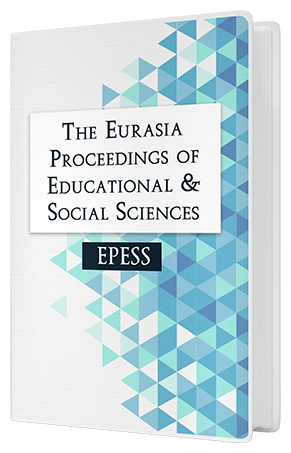SSI: Teachers Make STEM Concepts Relevant to Their Students
DOI:
https://doi.org/10.55549/epess.1381969Keywords:
Socioscientific issues, Teacher education, STEM, Pedagogical content knowledge, Lesson studyAbstract
Socioscientific issues (SSI) are ill-defined problems that teachers could use to make STEM concepts meaningful and interesting for their students. However, it is challenging for most teachers to plan and implement SSI in their classrooms because they lack the knowledge and teaching repertoire. We conducted a qualitative case study of five teachers to answer our research question: How did teachers’ pedagogical content knowledge (PCK) of SSI develop by the end of the professional development program? Our analysis of interviews, video reflection, and lesson plans pointed to teachers’ PCK of understanding of students and instructional strategies as they engage their students in identifying the issue, considering issue system dynamics, and comparing multiple perspectives (social aspects of SSI). Our findings supported the teachers’ PCK model that Lee (2022) proposed particularly the knowledge of students’ SSI learning and teachers’ choices of teaching and learning strategies for a particular group of students. Specifically, the teachers in our case study were able to use SSI contexts such as GMO foods and effects of fast fashion (chemicals on manufacturing and discarding clothes) on water quality on students’ motivation to learn about the scientific and ethical debates on GMOs and water resources. Moreover, a teacher was able to ask students to consider issue system dynamics such as habits, culture, lifestyle, costs, and income when examining different food choices. They were also able to engage students in developing, testing and analyzing scientific phenomena such as the effect of chemical dyes in clothing on water and genetically modified foods. They were able to incorporate elucidating one’s position on SSI and employing reflective scientific skepticism in their lesson ideas. Finally, teachers in our study used videos, guided questions, town hall meeting presentations, investigations, and other active learning strategies with their students.Downloads
Published
Issue
Section
License
Copyright (c) 2023 The Eurasia Proceedings of Educational and Social Sciences

This work is licensed under a Creative Commons Attribution-NonCommercial-ShareAlike 4.0 International License.
The articles may be used for research, teaching, and private study purposes. Any substantial or systematic reproduction, redistribution, reselling, loan, sub-licensing, systematic supply, or distribution in any form to anyone is expressly forbidden. Authors alone are responsible for the contents of their articles. The journal owns the copyright of the articles. The publisher shall not be liable for any loss, actions, claims, proceedings, demand, or costs or damages whatsoever or howsoever caused arising directly or indirectly in connection with or arising out of the use of the research material. All authors are requested to disclose any actual or potential conflict of interest including any financial, personal or other relationships with other people or organizations regarding the submitted work.




